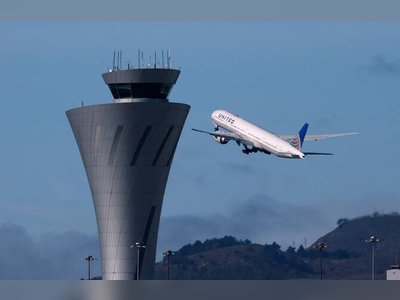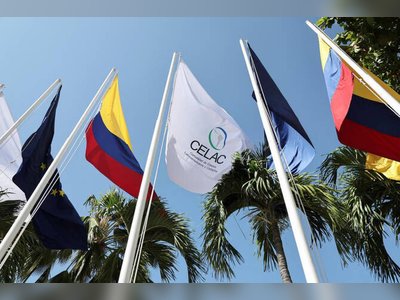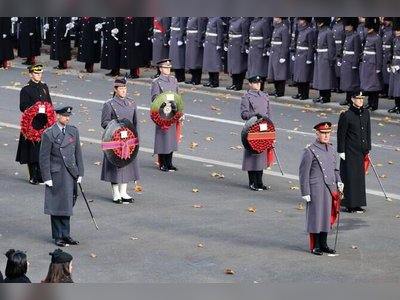
Delhi Protesters Demand Government Action Over Air Pollution
Demonstrators in New Delhi call for government intervention as pollution levels soar, affecting residents' health and quality of life.
Dozens of protesters gathered in New Delhi on Sunday to draw attention to the city's severe air pollution issues.
The crowd, which included parents with their masked children, demanded that the government takes effective action to address the toxic air quality that regularly shrouds the capital.
New Delhi, home to approximately 30 million people, is frequently cited among the world's most polluted urban areas.
During the winter months, a thick acrid smog envelops the city due to emissions from crop burning, factories, and heavy traffic, which traps pollutants close to the ground in cooler temperatures.
The situation becomes particularly dire when PM2.5 levels—tiny particulate matter that can enter the bloodstream—are measured at up to 60 times above the World Health Organization's daily health limit.
Protesters gathered around India Gate, where pollution levels on Sunday were over 13 times the WHO’s recommended maximum.
Namrata Yadav, a protester and mother, expressed her concern, stating, "I am here because I don’t want to become a climate refugee".
Many attendees shared their frustration with the lack of progress in tackling air pollution despite repeated efforts by the government.
These have included partial transport restrictions and water trucks spraying mist into the air.
The issue has serious health implications; studies link air pollution to millions of deaths annually, including an estimated 3.8 million in India from 2009 to 2019, according to The Lancet Planetary Health.
Children are particularly vulnerable, with polluted air increasing their risk for acute respiratory infections.
As the demonstration continued into the evening, police intervened and moved several protesters onto a bus, confiscating their signs.
One partially torn banner read, "I just want to breathe".
Despite these disruptions, calls for government action on pollution remain resolute among the affected population.
The crowd, which included parents with their masked children, demanded that the government takes effective action to address the toxic air quality that regularly shrouds the capital.
New Delhi, home to approximately 30 million people, is frequently cited among the world's most polluted urban areas.
During the winter months, a thick acrid smog envelops the city due to emissions from crop burning, factories, and heavy traffic, which traps pollutants close to the ground in cooler temperatures.
The situation becomes particularly dire when PM2.5 levels—tiny particulate matter that can enter the bloodstream—are measured at up to 60 times above the World Health Organization's daily health limit.
Protesters gathered around India Gate, where pollution levels on Sunday were over 13 times the WHO’s recommended maximum.
Namrata Yadav, a protester and mother, expressed her concern, stating, "I am here because I don’t want to become a climate refugee".
Many attendees shared their frustration with the lack of progress in tackling air pollution despite repeated efforts by the government.
These have included partial transport restrictions and water trucks spraying mist into the air.
The issue has serious health implications; studies link air pollution to millions of deaths annually, including an estimated 3.8 million in India from 2009 to 2019, according to The Lancet Planetary Health.
Children are particularly vulnerable, with polluted air increasing their risk for acute respiratory infections.
As the demonstration continued into the evening, police intervened and moved several protesters onto a bus, confiscating their signs.
One partially torn banner read, "I just want to breathe".
Despite these disruptions, calls for government action on pollution remain resolute among the affected population.










